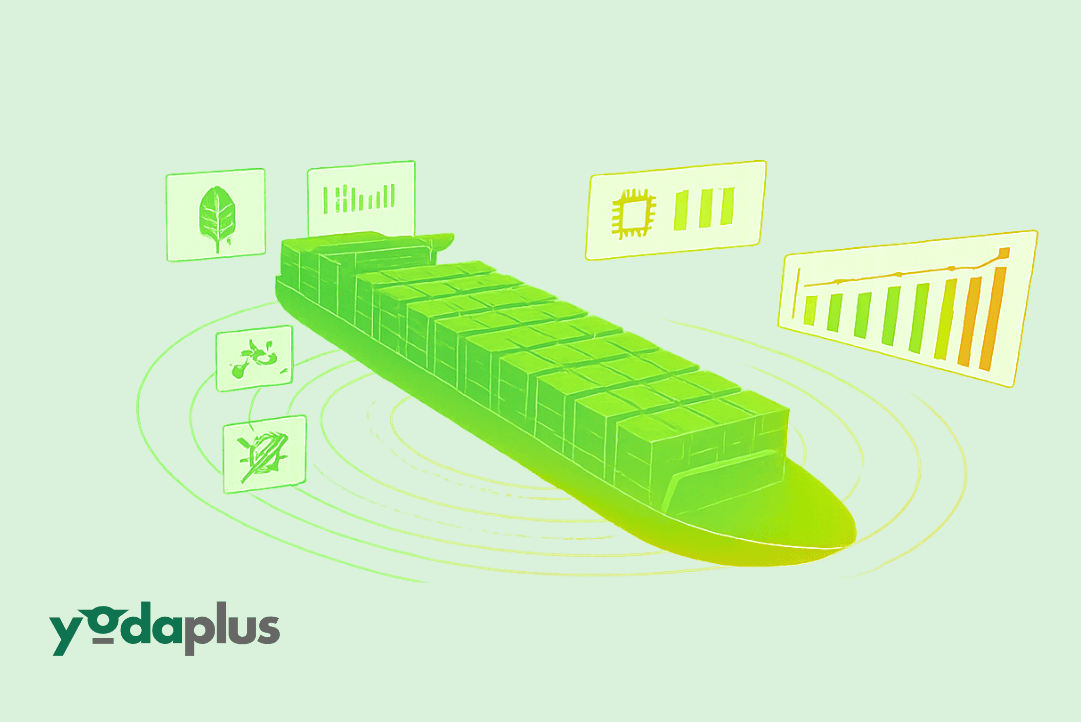
AI in Maritime Operations: Smarter Ship Management and Regulatory Readiness
August 22, 2025 By Yodaplus
Maritime operations are increasingly complex, and traditional methods of handling shipping documents and meeting maritime compliance requirements are struggling to keep up. Every vessel must maintain extensive shipping documentation, follow strict IMO regulations, and adhere to standards like MARPOL, SOLAS, ISM Code, and STCW. Yet, the industry is also moving toward digital transformation, where document intelligence and AI-driven systems are making compliance faster and smarter.
Why Ship Management Needs Change
For ship owners and operators, managing ship documents is not just about filing papers, it’s about proving compliance during Port State Control inspections, ensuring safety with Fire Control Plans, and meeting environmental rules such as Ballast Water Management and Pollution Prevention. Traditional methods often require manual checks and audits, which can lead to delays, errors, and regulatory risks.
Ship management teams also face growing responsibilities: risk assessment, risk analysis, crew seafarer training, Safety Management Systems, and vessel safety checks. As fleets expand and trade routes evolve, there is pressure to maintain accurate records, handle maritime documentation, and respond quickly to authorities like Port Authorities. This is where technology can make the difference.
What Is AI-Powered Document Intelligence?
Document intelligence uses AI to read, organize, and analyze maritime documentation. Instead of manually checking compliance with ISM Code, ISPS Code, or COLREGs, AI platforms can process records instantly, flag gaps, and even recommend actions.
For example:
-
AI in shipping can scan Safety Management Systems, identify outdated certificates, and prepare for SIRE Vetting.
-
Ship management software can integrate with Marine Technology tools, syncing with onboard sensors and fleet management platforms to keep documents updated automatically.
-
Automated reporting can speed up inspections, reducing downtime during Port Operations and ensuring regulatory adherence.
Benefits for Fleet Operators and Regulators
-
Accuracy and Speed: AI reduces human error in shipping compliance, ensuring the right maritime regulations are met.
-
Proactive Risk Management: AI highlights potential issues in pollution prevention, geopolitical risks, and maritime security before they escalate.
-
Centralized Control: Fleet management platforms give operators a clear view of ship management, certificates, and audit results in one place.
-
Improved Safety and Training: AI tools support seafarer training and guide crews through updated procedures, improving overall safety.
Environmental and Regulatory Pressure
Sustainability is a growing concern. Maritime environmental compliance now includes rules for emissions, waste disposal, and ballast water. Technologies like LSA Code, IMDG Code, and ISGOTT are evolving, and regulators expect fast responses. AI-driven systems help operators comply with maritime environmental compliance requirements while reducing operational costs.
How to Prepare for the Future
Companies that invest early in ship management software and AI-powered document intelligence gain a competitive edge. They improve risk assessment, streamline safety management, and ensure every ship management process meets current and future IMO regulations.
Some steps to consider:
-
Digitize your shipping documentation and centralize it.
-
Integrate marine technology tools with your compliance platforms.
-
Adopt AI solutions for regulatory adherence and safety management.
-
Train crews using AI-based seafarer training modules.
Yodaplus and Maritime Innovation
At Yodaplus, we are helping the maritime industry modernize compliance and documentation with AI. Our solutions simplify maritime documentation, enhance fleet management, and reduce risks across every aspect of ship management. From port operations to pollution prevention, we focus on giving operators the tools they need to meet the growing demands of global trade. Our product, OceanDocs, is designed to make this possible, an AI-powered document intelligence platform that streamlines shipping documentation, ensures regulatory readiness, and keeps compliance effortless for operators worldwide.